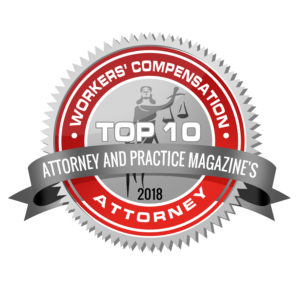Several times in life we ask ourselves “should I hire an expert, or should I just DIY this?” Maybe it’s building a deck, fixing a car, or doing your taxes. There’s no one right answer and each situation requires careful consideration, but I’d like to respond to the common hurdles that I’ve seen people have about hiring a workers’ compensation attorney.
- I don’t want to spend money on an attorney.
We’re starting off strong with what’s likely the biggest concern people have: cost. To understand this issue, we must first recognize how work comp lawyers are generally paid in Colorado.
Broadly speaking, there are three main types of legal fees: flat, hourly, and contingent. Flat fees are a single cost that covers the task at hand. Writing a will or contract are good examples where you’d pay a flat fee. It might be a one-time payment or perhaps via installments, but you pretty much know what you’re getting yourself into.
 Hourly rates are what most people associate with attorney costs. These prices can fluctuate dramatically depending on the task at hand, and may even come with a retainer. The scary part for most folks is they have no idea if the lawyer is being fair with their billing, which also causes them to hesitate talking to their legal representation throughout the case. That’s not a good mental state to be in, as it can feel like you’re throwing money into a void.
Hourly rates are what most people associate with attorney costs. These prices can fluctuate dramatically depending on the task at hand, and may even come with a retainer. The scary part for most folks is they have no idea if the lawyer is being fair with their billing, which also causes them to hesitate talking to their legal representation throughout the case. That’s not a good mental state to be in, as it can feel like you’re throwing money into a void.
The final option is a contingency fee, which is percentage based. This is how we get paid at FWI Legal, and for WC claims the fee is 20%. This arrangement has several benefits.
When you’re hurt, out of work, and losing wages, the last thing you want is another bill. In this scenario, you don’t have to worry about that because we’re only paid when money comes in. Since it’s always proportional to the amount received, you’re not going to be in a situation where your lawyer’s receiving hundreds of dollars while you’re stuck with a ham sandwich and a day-old bus pass. You’ll get the pie; we simply get a slice of it. Ultimately, the contingency fee works very well because it means you and the attorney’s interests align.
- Lawyers intimidate me.
 Law firms take up a weird place in society. Local TV lawyers are practically caricatures of the profession, and any Law & Order type of show is highly dramatized. Many people don’t want that kind of excitement in their lives when they’re injured.
Law firms take up a weird place in society. Local TV lawyers are practically caricatures of the profession, and any Law & Order type of show is highly dramatized. Many people don’t want that kind of excitement in their lives when they’re injured.
What they need is an advocate and legal counselor who can guide them through one of the most uncertain times of their lives. Every attorney has their own managerial style in the way they approach the practice of law and client interactions. I would encourage you to read bios and reviews to see if you’re a personality fit with a potential suitor; you’ll need to be a team in order to manage the claim successfully.
- I don’t want to be shuffled around the office.
 One concern I’ve heard from people who have had big firm experiences is they felt like they never knew who was handling their case. Any time they wanted to get updates, their attorney was unavailable and they were speaking with a different paralegal or secretary. It was like a phone tree from hell.
One concern I’ve heard from people who have had big firm experiences is they felt like they never knew who was handling their case. Any time they wanted to get updates, their attorney was unavailable and they were speaking with a different paralegal or secretary. It was like a phone tree from hell.
This can certainly happen at a small firm, but I think it’s less likely because you’re only working with a handful of folks. For instance, I personally speak with my clients very early in the process and handle their cases from beginning to end. If we go to court or mediation, I’m there with you. To date, I have one paralegal who handles all of the work with me, so we are intimately familiar with your case.
- I don’t want to sue my employer.
Great news, we don’t want to sue them either! We handle WC claims, not WC lawsuits. It’s very, very rare when that’s not the situation, and you’d be able to make that final decision. What we are doing is handling claims made against your employer’s insurance. I won’t call your employer, I won’t harass your coworkers… I work directly with an adjuster and their attorney, if they have one.
When you’re hurt on the job, a claim is filed regardless of whether you “pursue” it or not. That’s the law the employer is supposed to follow. It may be classified as “medical only” or turn into a higher-level claim with other benefits, but it’s still a claim. That means it’s moving forward whether you want it to or not, so you should at least conduct some basic due diligence. We will chat with you for free and give you advice on the options you have and make it as simple as possible.
The employer will almost always do what’s in their best interest, particularly when the adjuster is advising them what to do (which is always the case). I’ve seen several employers act cordial in the beginning, but the relationship breaks down over time and they leave injured workers out to dry once treatment wraps up. Workers’ Compensation is not known for being a great system for injured workers, so you need to take care of yourself first. There are other jobs out there if things go south, but only one of you.
- The insurance is already paying my benefits.
 This can be an “ignorance is bliss” sort of scenario. Reminds me of the movie The Matrix.
This can be an “ignorance is bliss” sort of scenario. Reminds me of the movie The Matrix.
Horrible adjusters are great at giving law firms business because people get tired of dealing with them. But some of the nice ones are who you have to watch out for because they may lull you into a false sense of security. Don’t get me wrong; I get along with a lot of adjusters and defense attorneys.
But their interests do not align with yours – pure and simple.
Let me ask you a few questions about injuries incurred in the line of work. How much pain and suffering do you receive for a work accident? Is a shoulder injury considered Whole Person or Scheduled? Are you allowed to get a second opinion outside the work comp system? If someone is driving to work and gets in an accident, is that covered?
 I could go on and on with questions like this. If you don’t know the right answers, where will you find them? The adjuster and their attorney will be happy to answer them for you… will you fully trust their responses?
I could go on and on with questions like this. If you don’t know the right answers, where will you find them? The adjuster and their attorney will be happy to answer them for you… will you fully trust their responses?
Know your rights. A work injury is a serious endeavor and you have one chance to handle it correctly. The exact moment you get hurt, deadlines start triggering. We can jump into the claim at many places in its timeline, but the longer you wait the more difficult it can become. Subbing a star quarterback in the 4th quarter when you’re down by 30 points isn’t going to be as beneficial as starting the game with them.
If you have questions, please give us a call. There’s no cost or obligation and those 10 minutes could ultimately save you a lot of time, money, uncertainty, and pain.



























